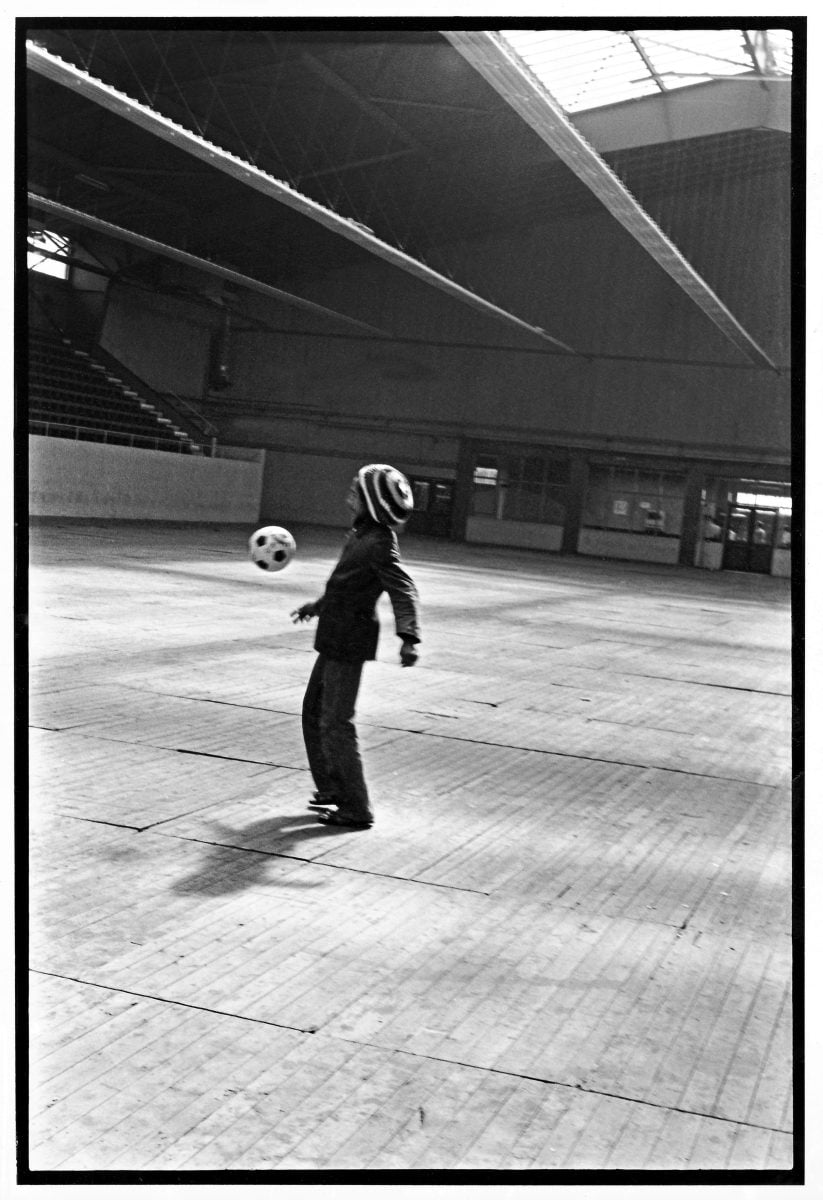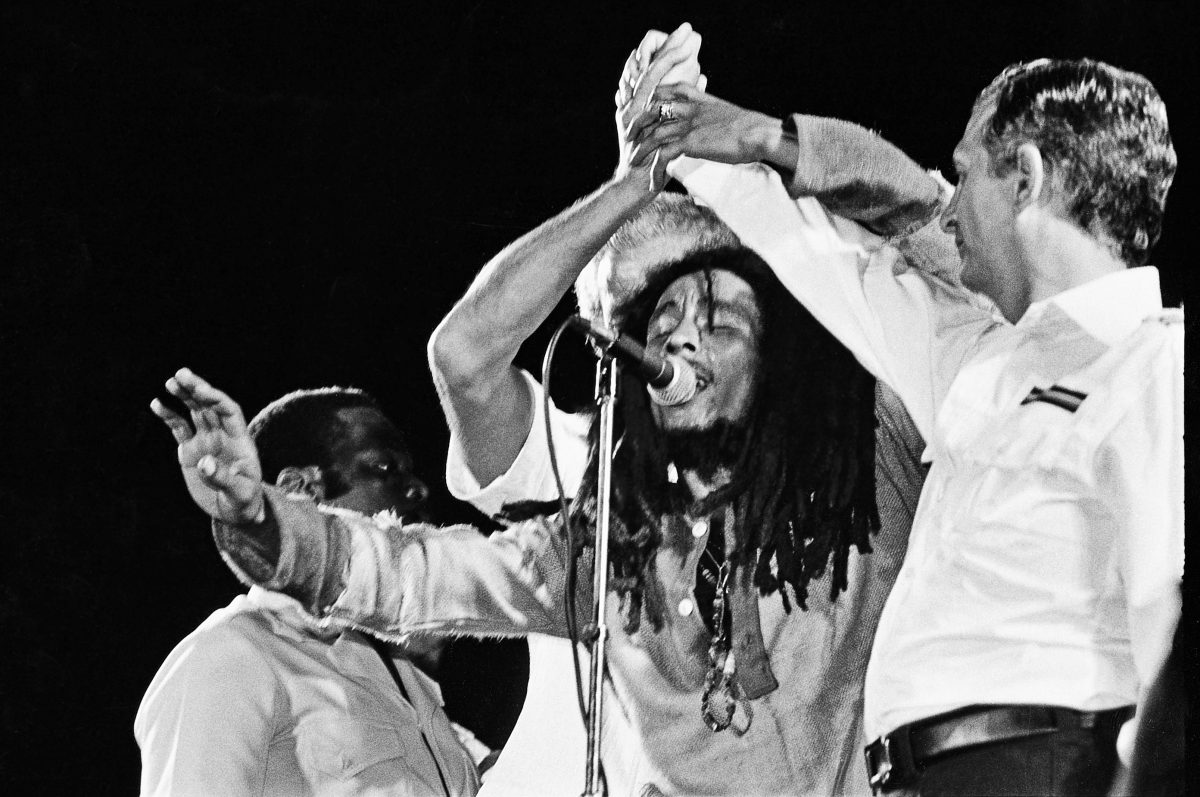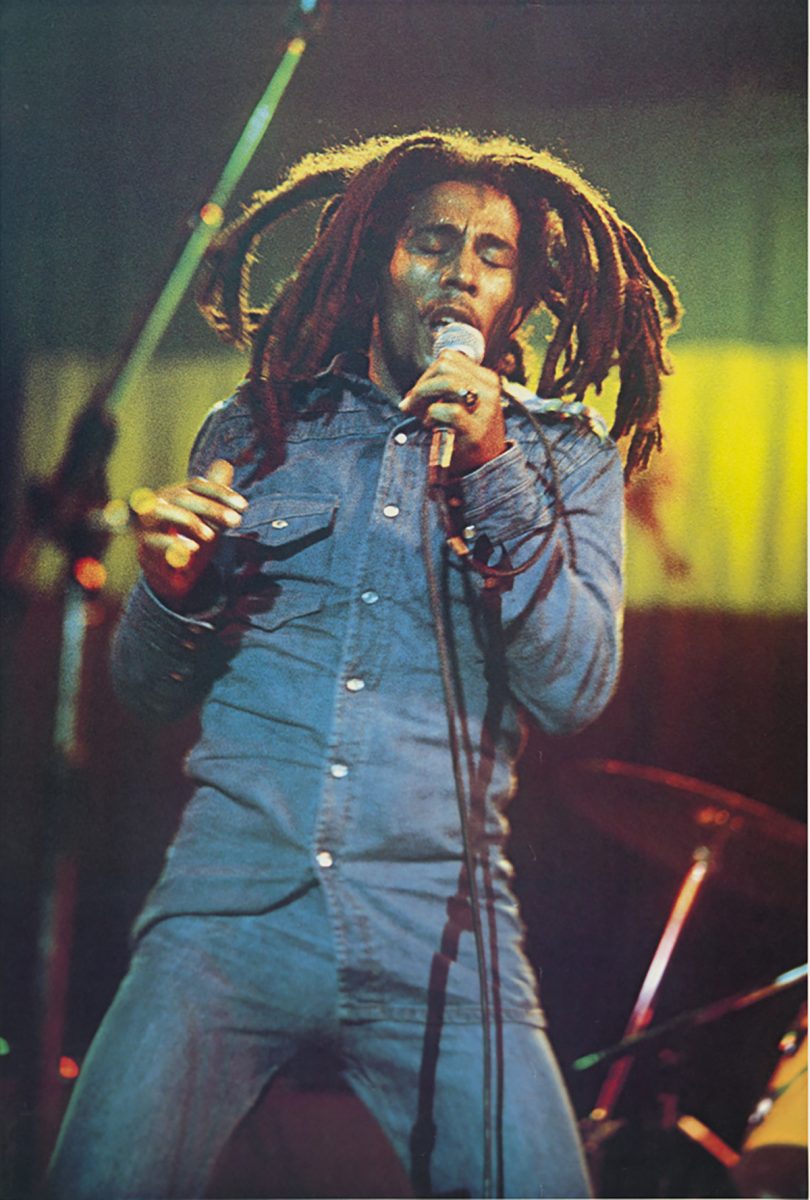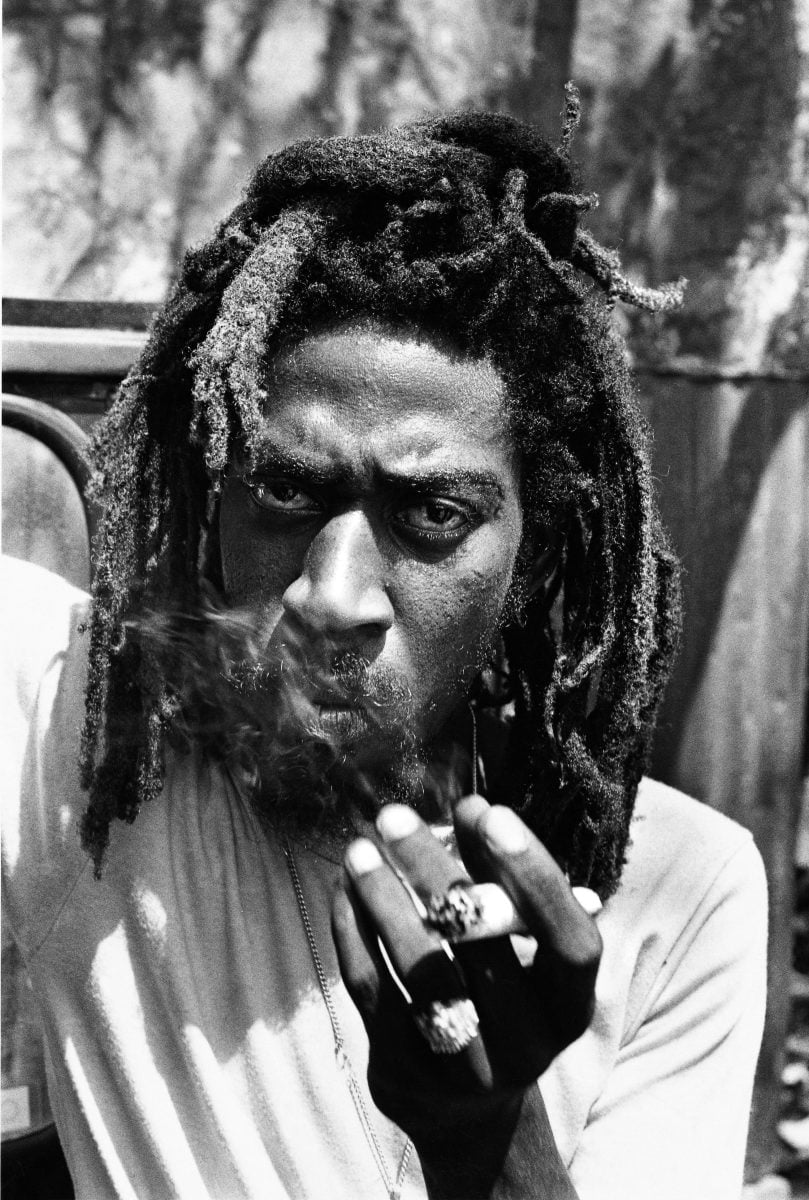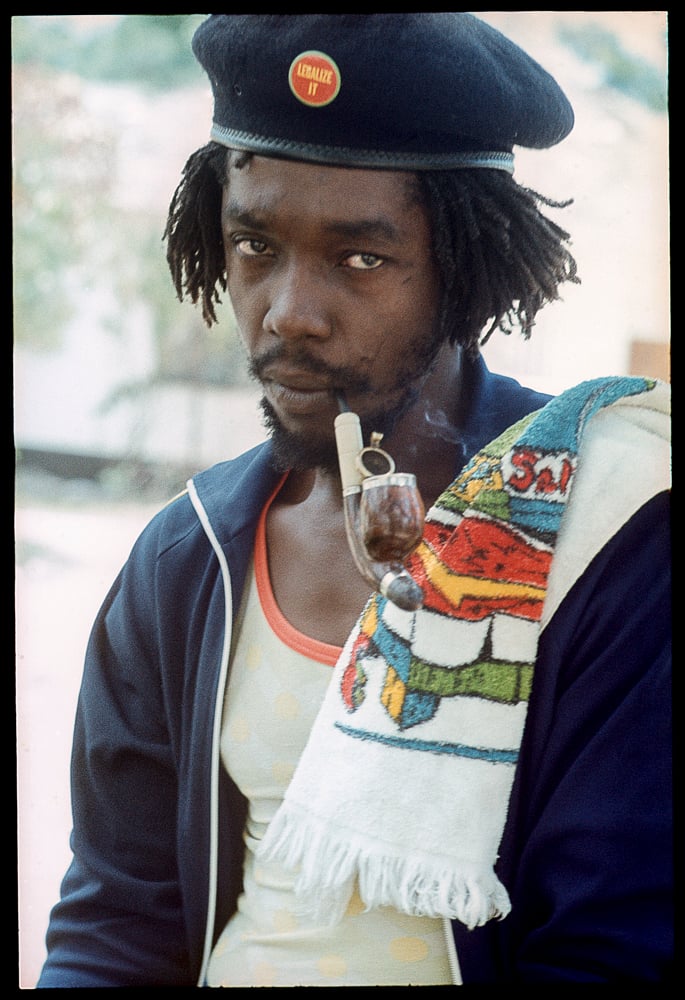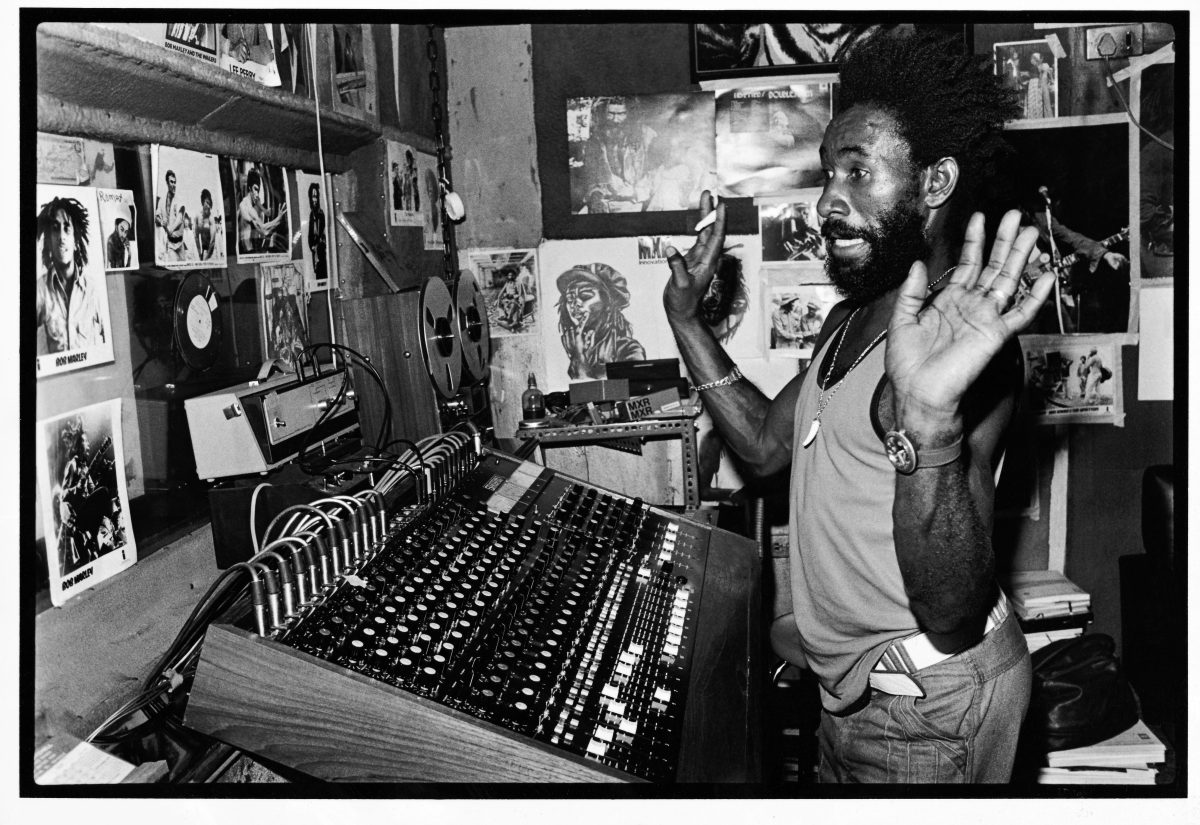Kate Simon’s Intimate Photographic Journey With Bob Marley And The Wailers
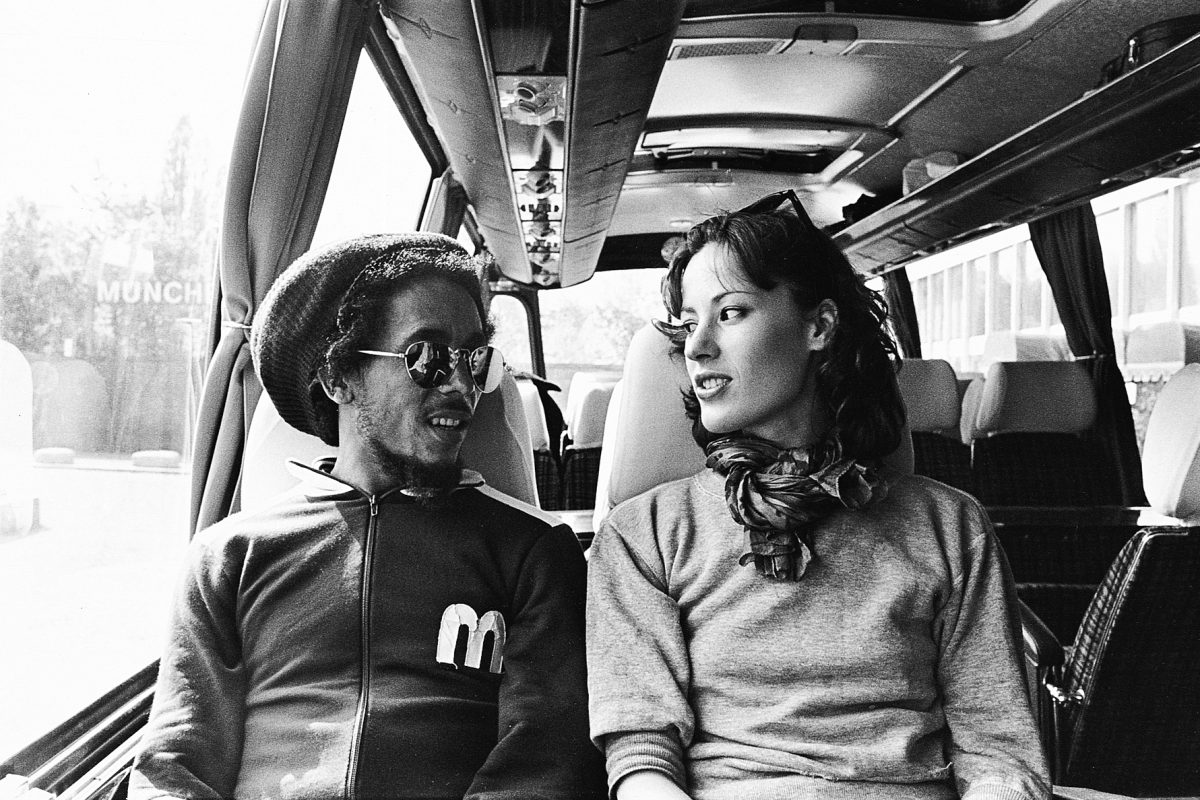
For many, the name Kate Simon might not immediately evoke the vibrant rhythms and soulful melodies of Bob Marley. But as Simon’s latest work, Rebel Music: Bob Marley & Roots Reggae, is set to reveal on September 26, her connection to the Reggae legend is profound, offering the world a fresh perspective through over 400 exclusive photographs.
Simon first photographed Marley in 1975 at the Lyceum Theatre in London, where he and The Wailers recorded their Live album in concert. Speaking with DancehallMag, she said she had no idea that nearly 40 years later, her lens would have afforded the world such a profoundly intimate look at the Reggae legend – who often seemed ethereal.
“There’s no way I could have known that someone I started photographing in 1975, all these years later, would have appealed to me so much. There was such an enlightenment about photographing him [Marley] in his element. There really was no way I could have known he would mean so much to me and the world,” Simon explained.
She added: “I was very young when I met him. He’s been in my life because of my work – for over 40 years. I still listen to his music, still think of the time around him really, really clearly. It’s an experience I can quite honestly describe as being spiritual.”
Though she would go on to have an enviable career that saw her photographing rock luminaries like Rod Stewart and The Rolling Stones, according to her, none resonated with her as deeply as her time with Bob Marley and The Wailers.
“There was something very inclusive about him, something very personal. Everyone wanted to be close to him, including me. I was a journalist, but being around him was such a pleasure. You felt like Bob and The Wailers were all about their message. It wasn’t just about music – it was something special,” Kate revealed.
From his iconic performance at the Lyceum Theatre to the transformative One Love Peace Concert in Jamaica in 1978, Marley’s journey was punctuated with moments that shifted cultural paradigms. And Simon, with her camera in tow, was often there to immortalize them.
“I saw Bob after the One Love Peace Concert. As intense as it was, he was the same person. Bob was always Bob,” Simon shared. “He was also,” she continued, “very professional. He worked really hard and was always the first one on the bus. He truly was committed to his music, band and message, and there was always something so… universal about him.”
Simon, who is a New York native, added that Marley’s near-religious commitment to his cause set him apart.
“He was unlike anyone else I’d ever met. He was committed to his music, his band and his message, and that never wavered. To this day, I’m still friends with his personal cook at the time, Billie, and I am now convinced that no one who ever spent time around him has ever forgotten him.”
Rebel Music, initially released in 2004 as a limited edition of only 2,000 copies, is set for a broader re-release this month as hardback bookstore edition. Simon promises that the publication, dubbed “the definitive Bob Marley book,” will be an intimate journey, supported by testimonies from music icons like Lenny Kravitz, Keith Richards, and Bruce Springsteen. “In the book, you see a real intimate side to Bob and all the musicians. I was going for something really intimate and personal, and that’s what you’ll see,” she shared.
In an exclusive preview, DancehallMag found Simon’s promise to be true.
From candid shots like the Kaya album cover, taken after a playful swimming race against Island Record’s Chris Blackwell, to more introspective moments like Peter Tosh’s flexible karate moves or an animated Lee ‘Scratch’ Perry at the mixing board, Simon’s work is a deep dive into Marley’s world.
“I went on the Exodus tour with him and The Wailers,” Simon recalled, adding that her photos documented Bob’s dedication to his craft, which would persist even when he wasn’t performing. “He was really serious about the experience. I saw how he was. Even the food, everything was Ital. It was all run like a very tight ship, and I’m grateful he collaborated with me on it. I also saw him in New York when he came to play Coming In From The Cold from the record Uprising. Even when we would be staying at Chris Blackwell’s. All those moments stood out to me.”
The timeless photographs of Bob Marley and The Wailers, as much as they document the group’s incredible gravity, are also testaments to Simon’s commitment to her love of all the things Marley stood for. There was no distance too great to document that.
“I went all over the world to see him [Bob]. I’ve captured many moments of him playing football, riding a bike, or saying hello. I even went to see him when he lived in Chelsea on Rainbow Street,” Simon said.
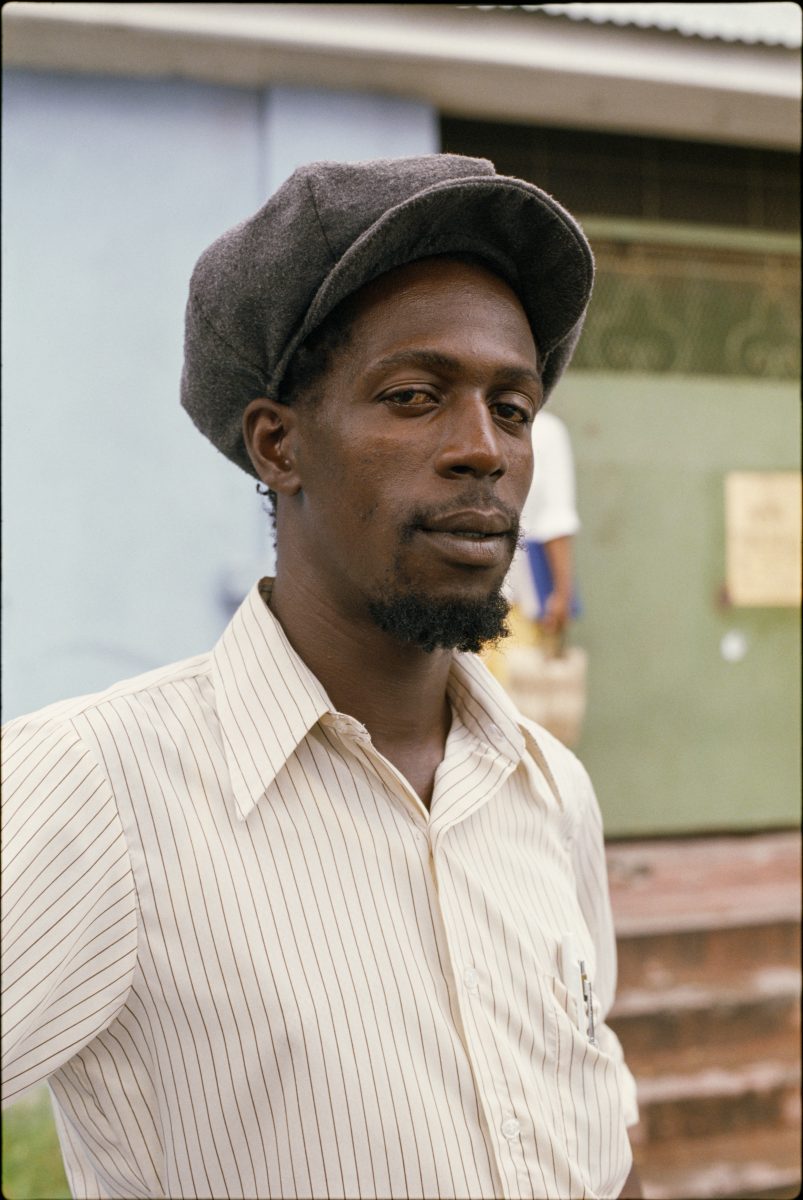
Yet, when pressed for a favorite memory, Simon hesitated.
“It’s hard to pick just one thing from all those experiences,” she admitted. “[But] I do remember a few that stand out.” One such is when she photographed him in an airport: “I have all these pictures of him, but there’s one in particular where he was reading the Bible in an airport. That, to me, was pretty poignant.”
She offered another: “After he played in Berlin, where he sung a rather piercing version of War, I went backstage to take some pictures. When I found him, his head was down in this prayer posture. He was still in tune. He was still about his mission and everything. I was really honored to just share in moments like that.”
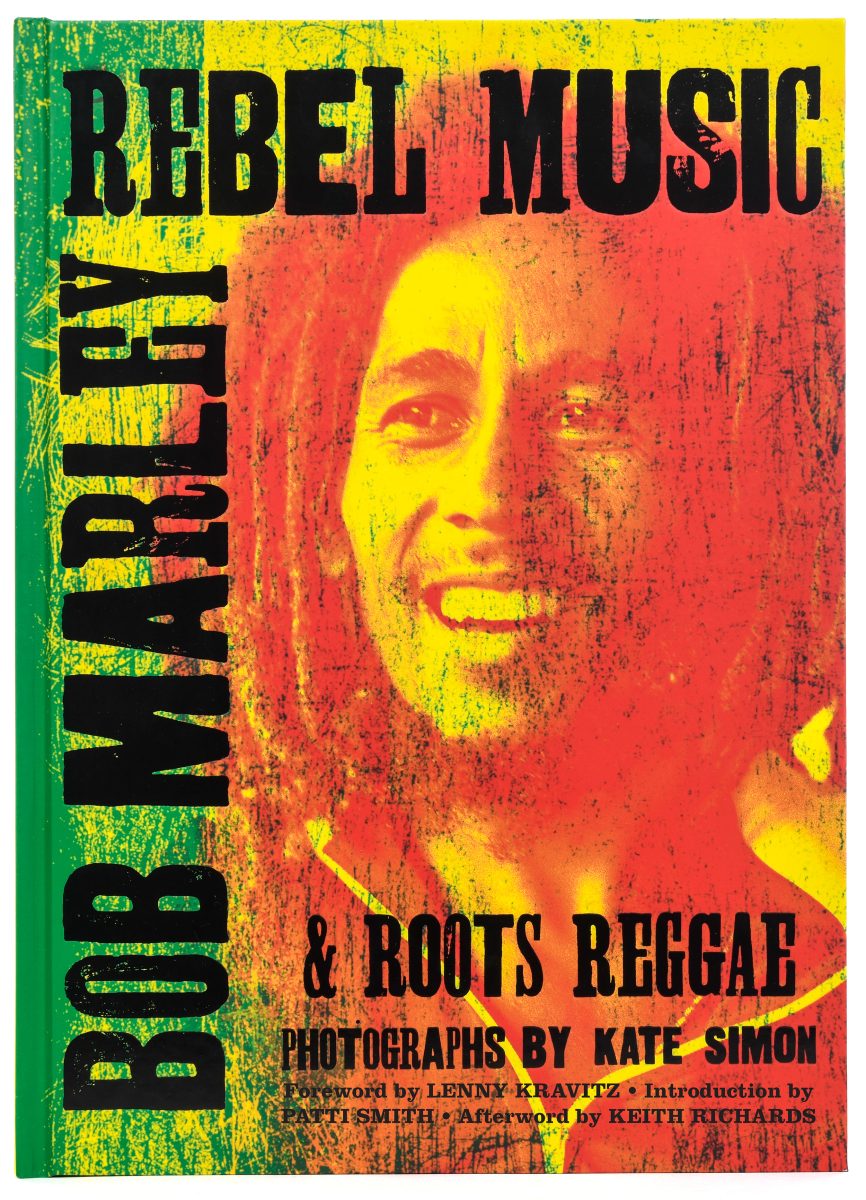
Receiving the Marley family’s endorsement, particularly from Cedella Marley, was a significant affirmation for Simon. Beyond that validation, when Simon considers her work, she is often left to ponder the lessons she picked up from her wide travels with Marley.
Kate shared: “I think the message he left – or what he would say is – we are to stand up for our rights. He would also tell us to love one another too. I believe his lyrics are directives. These were key things that spoke to me that made me feel stronger in my own state. His words are some powerful truths that have fueled my fate, as I’ve been listening to him all my life. He wasn’t a Rockstar, he didn’t need adoration. His was merely a message of peace and spirituality, and he was on a mission to spread that.”
Simon was given a copy of Bob Marley and The Wailer’s Exodus before it was released, and it was then that she decided how she wanted to represent him. She told DancehallMag: “That moment was special, and it helped decide how I would visually represent him. I got that from listening to Exodus. He spoke of message of fearlessness, and that’s why his message and his music will live forever.”
Rebel Music: Bob Marley and Roots Reggae can be found at Marleybook.com via British publisher Genesis Publications.

